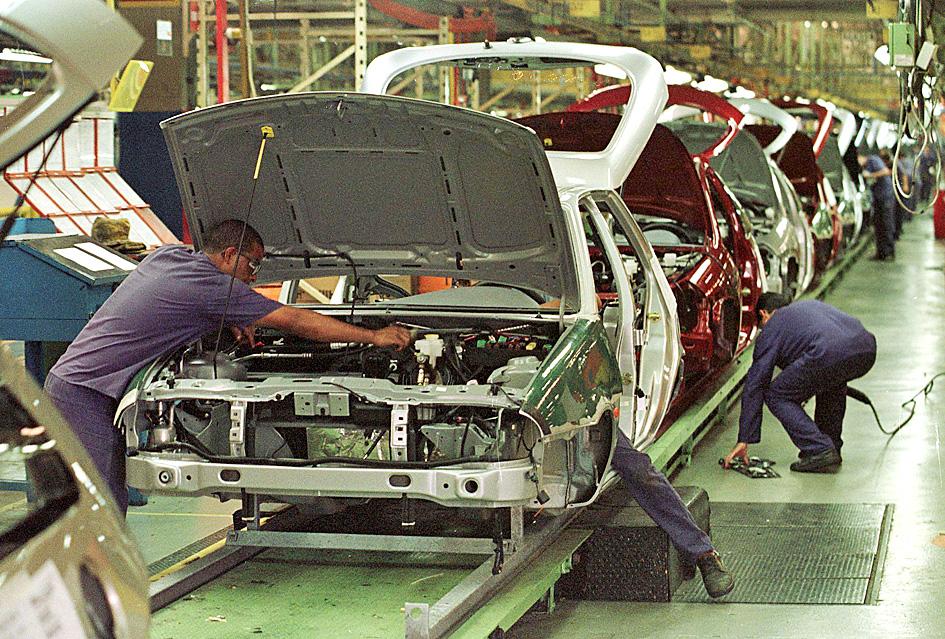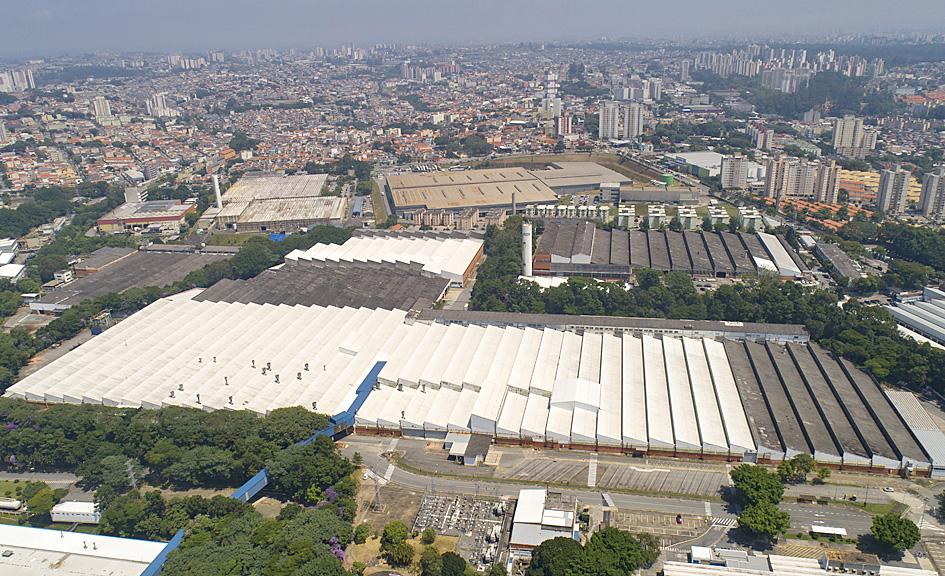Ford Motor Co on Monday said that it would close three plants in Brazil and stop producing automobiles in the South American country, where it has been operating since 1919.
The company said in a statement that it would immediately cease production at the factories “as the COVID-19 pandemic amplifies persistent industry idle capacity and slow sales that have resulted in years of significant losses.”
Unions of two units that are to be closed said that about 4,800 workers between them are affected.

Photo: AFP
The automaker said that it would keep its South America headquarters, proving grounds and product development center in Brazil.
“With more than a century in South America and Brazil, we know these are very difficult, but necessary, actions to create a healthy and sustainable business,” Ford president and CEO Jim Farley said. “We are moving to a lean, asset-light business model by ceasing production in Brazil and serving customers with some of the best and most exciting vehicles in our global portfolio.”
Ford’s decision is yet another blow to Brazil, whose economy has suffered since 2014, sinking further amid the pandemic. The country’s unemployment rate is nearing 15 percent, a figure that economists consider to be largely underestimated.

Photo: AP
Ford also said that its Brazilian clients would have their needs met with vehicles sourced from plants in Argentina, Uruguay and other regions.
Ford’s decision caused a political stir in Brazil.
Brazilian House of Deputies President Rodrigo Maia wrote on Twitter that the closings are “a sign of the lack of credibility of the Brazilian government.”
Fabio Wajngarten, press secretary for Brazilian President Jair Bolsonaro, wrote on Twitter that Ford’s decision “has nothing to do with Brazil’s political, economic and legal situation.”
“Who says otherwise is lying and wants the spotlight,” he added.
Brazil’s National Association of Vehicle Manufacturers said that Ford ended last year as the fifth-highest selling company of the sector, with a market share of 7 percent.

Among the rows of vibrators, rubber torsos and leather harnesses at a Chinese sex toys exhibition in Shanghai this weekend, the beginnings of an artificial intelligence (AI)-driven shift in the industry quietly pulsed. China manufactures about 70 percent of the world’s sex toys, most of it the “hardware” on display at the fair — whether that be technicolor tentacled dildos or hyper-realistic personalized silicone dolls. Yet smart toys have been rising in popularity for some time. Many major European and US brands already offer tech-enhanced products that can enable long-distance love, monitor well-being and even bring people one step closer to

Malaysia’s leader yesterday announced plans to build a massive semiconductor design park, aiming to boost the Southeast Asian nation’s role in the global chip industry. A prominent player in the semiconductor industry for decades, Malaysia accounts for an estimated 13 percent of global back-end manufacturing, according to German tech giant Bosch. Now it wants to go beyond production and emerge as a chip design powerhouse too, Malaysian Prime Minister Anwar Ibrahim said. “I am pleased to announce the largest IC (integrated circuit) Design Park in Southeast Asia, that will house world-class anchor tenants and collaborate with global companies such as Arm [Holdings PLC],”

Sales in the retail, and food and beverage sectors last month continued to rise, increasing 0.7 percent and 13.6 percent respectively from a year earlier, setting record highs for the month of March, the Ministry of Economic Affairs said yesterday. Sales in the wholesale sector also grew last month by 4.6 annually, mainly due to the business opportunities for emerging applications related to artificial intelligence (AI) and high-performance computing technologies, the ministry said in a report. The ministry forecast that retail, and food and beverage sales this month would retain their growth momentum as the former would benefit from Tomb Sweeping Day

Thousands of parents in Singapore are furious after a Cordlife Group Ltd (康盛人生集團), a major operator of cord blood banks in Asia, irreparably damaged their children’s samples through improper handling, with some now pursuing legal action. The ongoing case, one of the worst to hit the largely untested industry, has renewed concerns over companies marketing themselves to anxious parents with mostly unproven assurances. This has implications across the region, given Cordlife’s operations in Hong Kong, Macau, Indonesia, the Philippines and India. The parents paid for years to have their infants’ cord blood stored, with the understanding that the stem cells they contained